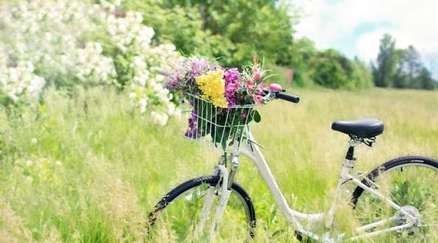Nature hikes during shemitah

Now that it's summer vacation, many enjoy nature hikes in our beautiful country. During the shemitah year, we need to consider the laws of shemitah that we don't encounter every day. For your convenience, we compiled a concise list of related halachot that you may be relevant during your vacation.
Picking fruit from trees
Although during the shemitah year all fruit are ownerless, do not pick from orchards, groves, or vineyards without permission from the owners. Most owners perform heter mechirah, which nullifies the fruits' shemitah status.
Fruit trees growing wild in open areas are ownerless and it is permissible to pick fruit from them. Most fruit on the trees already have kedushat shevi'it, such as: lemons (ripe), peaches, nectarines, grapes, cherries, plums, figs, carobs, and mangoes.
From such fruit it is permissible to pick a small amount meant for family use for a short period of time (a week) and handle the fruit following the rules for kedushat shevi'it.
This fruit is exempt from terumot and ma'aserot (also during regular years) since ownerless fruit is not obligated in terumot and ma'aserot.
Tourist harvest
There are sites that offer the public as a fun, tourist activity to come fruit picking. During the shemitah year, avoid such places unless they have a valid certificate of heter mechirah or is affiliated with an otzar beit din. Heter mechirah fruit is obligated in terumot and ma'aserot without a blessing, while otzar beit din fruit is exempt.
Watering plants
It is permissible to water plants during shemitah only when the plant needs the water to survive. Plants growing in the wild generally thrive on their own without any additional water, so they should not be watered. For this reason, if there is extra water in your bottle, avoid pouring it on a plant or its roots to water it. However, if done unintentionally, such as when washing hands or relieving oneself outdoors, it is not necessary to avoid watering the plant. For instance: it is permissible to wash hands on a grassy area (unlike during Shabbat).
Organic fertilizer
Fertilizing is one of the agricultural actions forbidden during the shemitah year. However, if performed in a random and unintentional manner, it is not forbidden. For this reason, it is permissible to relieve oneself directly onto the ground and even to throw peels into an open area when not intending to fertilize the soil. This is even allowed for fruit pits, since it is almost certain that they will not take root in the soil in this way. However, some are stringent in this regard.
Plowing and leveling the ground
It is forbidden to plow the ground and remove rocks during shemitah. This is true when these actions are meant to enhance plant growth or to prepare the soil for planting. However, flattening out the soil for other reasons is permissible. Therefore, it is permissible to level the ground (remove rocks, etc.) in order to set up a tent, or dig a ditch for relieving oneself. In such cases it is important to perform these activities in a way that it is obvious that there is no intention to plant. For example: place the tent next to the area before leveling the soil or place the roll of toilet paper on the ground next to the place of the intended hole before digging. The soil dug up or removed from the area should not be sprinkled evenly on the soil. Instead, leave it in a heap.
Benefit from wild plants
Plants that grew on their own during shemitah are subject to the sefichin prohibition. However, there are several cases where the sefichin prohibition does not apply:
The sefichin prohibition applies only to annuals, not to biannual or perennials.
The Sages issued the prohibition only for plants that are commercially grown, not wild plants, such as wood sorrel (known as hamtzitz or hamtzutz) and mallow (a.k.a. hubeza). This is true also for plants generally sown for animal fodder.
Even if you found a cultured strain of annual self-seeding plants (such as herbs), it is permitted to eat or use them if the area is not suitable to plant in, such as a steep cliff.
The sefichin prohibition does not apply to the Negev (south of Mitzpe Ramon, west of the Ashkelon - Oley Mitzaraim).
In all of these cases, the plants have kedushat shevi'it and should be used in a conventional manner, and not wasted or spoiled.
It is also important to take precautions to avoid the many prohibitions involved in eating insects; those who are not experts in identifying insects can enjoy their taste by using a dense sieve or cheesecloth.




